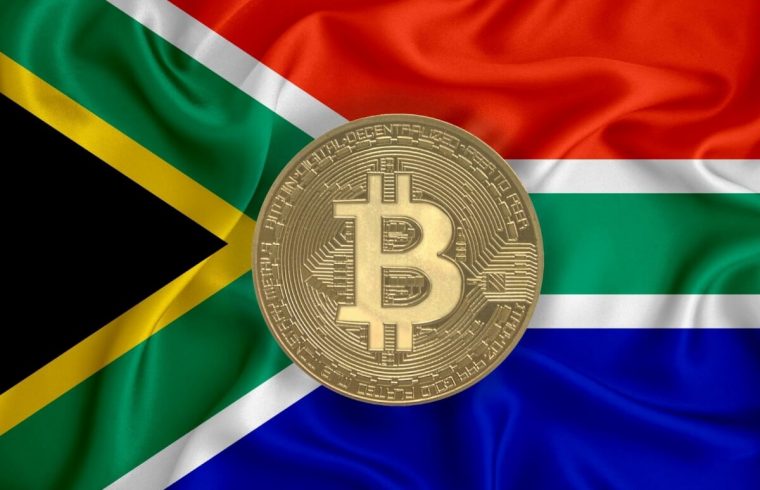Bitcoin’s last all-time high was in 2021. It got above $ 65,000 and approached the $ 70,000 mark. This was in USD, obviously.
But in South Africa, where the South African Rand (ZAR) is used, it’s different.
Bitcoin’s last all-time high in ZAR was last week. A few days ago, Bitcoin touched R 1,000,000 for the first time. Meanwhile, in USD, the Bitcoin price was $ 52,000.
Why?
Why is there this discrepancy?
ZAR Depreciation
Of course, the primary reason for the discrepancy is the change in the ZAR/USD exchange rate. The ZAR has depreciated significantly against the USD since 2021. In November 2021, that exchange rate was around R 15/$ 1. But today, it is around R 19/$ 1.
South Africa is not alone.
At least 14 other countries have also recently experienced Bitcoin all-time highs in their local currencies. This includes Argentina, Egypt, Japan, Nigeria, Turkey, and others.
Each of these countries has their own story. Let’s take a moment to discuss why the value of the South African Rand has dropped relative to the US Dollar.
Here are four terrifying facts to give a birds-eye view of the South African economy:
- In 2023, the country experienced power outages for 20% of the year. To make it more tangible – that’s 72.6 days, or 1 742 hours, without electricity.
- As of Q3 of 2023, the official unemployment rate in South Africa is 31.9%. Under the expanded definition of unemployment, the rate is 41.2%.
- In the last tax year, a little over 10% of the population was expected to pay income tax.
- Do you know what percentage of the population receives monthly government grants? It is 47 percent. 47% of South Africans receive a monthly grant from the government.
Now, are you starting to understand why the ZAR has depreciated against the USD? The South African economy is struggling. International investment is slowing, and local manufacturing is in trouble. South Africa’s housing market has been sluggish.
Oh. And we almost forgot something.
In 2023, the Financial Action Task Force (FATF) greylisted South Africa.
As a result of all the above factors and inflation, the South African Rand has depreciated 173% against the US Dollar over the past twenty years. Over the past five years, it has depreciated 38.53%. And when this is the depreciation, we end up with a discrepancy in Bitcoin’s all-time high figures.
Cryptocurrency in South Africa
Despite the economic challenges, South Africa has witnessed a surge in cryptocurrency adoption. Many find it attractive as a financial tool and investment vehicle for many reasons.
- Accessibility and convenience: Crypto offers an alternative to traditional financial systems. This is especially relevant for those who are unbanked or underbanked.
- Remittances: Crypto facilitates faster and cheaper international money transfers. Additionally, USD stablecoins sold on South African exchanges are sold at above-market rates. This is thanks to South Africa’s version of the “Kimchi Premium”. Check out this tweet for a more thorough explanation.
- Hedging: Some South Africans buy cryptocurrencies as a hedge against the country’s inflation. This also gives people exposure to assets that are not subject to the problems plaguing the country.
There is positive momentum for cryptocurrency in South Africa. Licenses to operate in South Africa as crypto asset service providers (CASPs) are relatively new. The Financial Sector Conductor Authority (FSCA) recently short-listed 50 companies for these licenses. Additionally, South Africa’s National Treasury announced plans to explore stablecoins and blockchain further. South Africa’s banks remain amongst the best in the world. They are both technologically advanced and financially sound.
But that’s not all.
South Africa’s biggest crypto exchange VALR is growing and building rapidly. VALR has just launched its perpetual futures product. This is an exciting development. Perpetual futures account for over 75% of global crypto trading volumes. This gives South Africans more opportunities to access the crypto markets.
Crypto adoption is growing in South Africa.
As demand grows, the country will have to adapt. The role that VALR, and other businesses must play includes a few parts:
- Educating users: Building awareness about the risks and benefits of cryptocurrencies is essential. This industry is different from the norm, and it is new.
- Regulation: Advocating for clear and fair regulations. This ensures a safe and stable environment for the industry to thrive.
- Driving Value: Cryptocurrencies create value for people and solve real problems. It is critical to ensure that the industry continues to increase efficiencies and create new opportunities.
Where Does This Leave Us?
There is both progress and opportunity for the crypto industry in South Africa. This is despite, or maybe, because of, the depreciation of the South African Rand against the US Dollar.
Bitcoin’s all-time high in ZAR was primarily due to ZAR depreciation. But we should not ignore the fact that demand for crypto in South Africa is growing. This demand is also a contributing factor.
It signifies a growing local market with immense potential.
This year is an election year in South Africa. The political landscape is changing, and nobody can precisely predict what will happen. It is clear that these elections will be a major inflection point for the country. The direction of the economy is in the balance. The future of the cryptocurrency industry in the country will be in the hands of the next government.
Disclaimer: The subject matter and the content of this article are solely the views of the author. FinanceFeeds does not bear any legal responsibility for the content of this article and they do not reflect the viewpoint of FinanceFeeds or its editorial staff.












